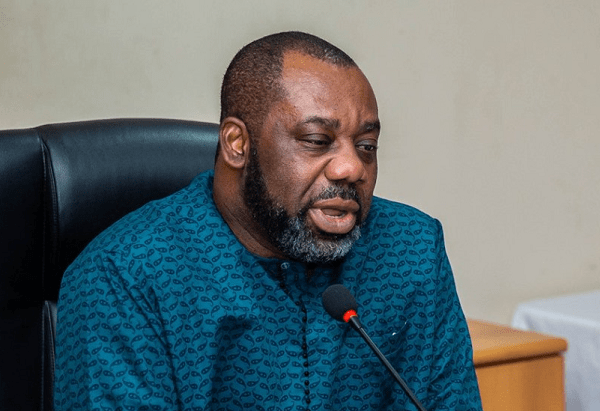
Govt announces guidelines for second year Gold Track vacation
The government, in collaboration with the Ghana Health Service (GHS), has announced the guidelines to be followed by senior high schools (SHSs) to exit the second year Gold Track students for their vacation.
Guidelines
Providing the details of the three-module guidelines at the government’s COVID-19 update briefing in Accra on Thursday, the Director-General of the Ghana Health Service, Dr Patrick Kuma Aboagye, said the guidelines allowed students in schools that had recorded no case of COVID-19 and those who did but had not recorded any fresh cases in the last two weeks to go home.
The third group will be any school that has had a positive case in the last two weeks.
Dr Kuma Aboagye explained that students who would be identified as contacts of newly recorded cases in the last two weeks would be delayed for further observation and assessment before being allowed to go home.
Advertisement
“The arrangement for discharge is in three categories. There would be subsequent press release on that. Students in schools that have not reported any case vacated yesterday and were allowed to go home.
“The second category is the schools which have recorded a case but in the last two weeks have not recorded any cases. They have also been allowed to go home. The third group will be any school that has had a positive case in the last two weeks.
“Their assessment will be done to identify their contacts, and if any student is found in that category, their vacation would be delayed for a while and assessment and observation done before allowing them to go home,” Dr Kuma Aboagye said.
He explained that consultations would be done with parents of students whose vacation would be delayed.
Although educational institutions remain closed, the President in his 10th address to the nation said the second-year Gold Track students would be allowed to go back to school for six weeks, starting from June 22 to July 31, to complete their academic year.
National update
The number of active cases of the COVID-19 in the country stood at 3,223, showing drop from 3,600 during the update last Tuesday.
Dr Kuma Aboagye reiterated that active cases were the most important figure to be focused on by all stakeholders because it represented the actual national burden.
He said a total of 32,096 persons had recovered and been discharged from health facilities, adding that so far over 390,000 tests had been conducted for the virus.
Dr Kuma Aboagye said cumulatively, the country had recorded a total of 35,501 out of which 182 had died.
“Whatever we are doing, particularly the adherence to the protocol of which we are seeing some improvement, must continue and we hope with that we should be able to bring the numbers down,” he said.
Focus on active cases
The Minister of Information, Mr Kojo Oppong Nkrumah, appealed to stakeholders such as the media and communicators to focus on the active case data as that represented the true national burden.
He said a focus on the cumulative cases had international socio-economic implications on the country.
“Colleagues, Ghana does not have 35,501 COVID-19 cases. If we tell the world that Ghana has 35,501 COVID-19 cases, it has implications.
“The impact is that as the world opens up its airports and opens up for international travels, because of what we are telling the world, we would not be counted among the permitted categories.
